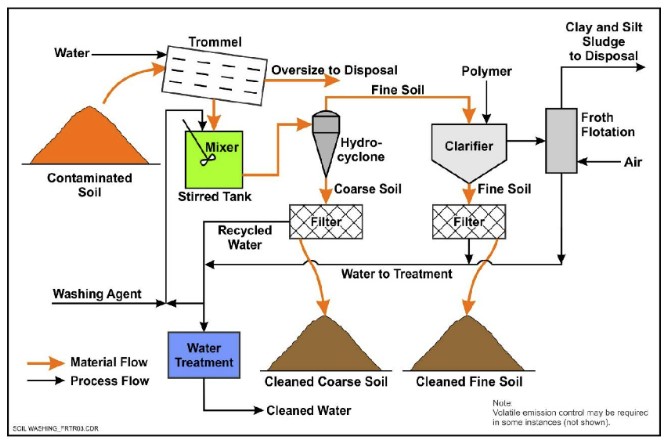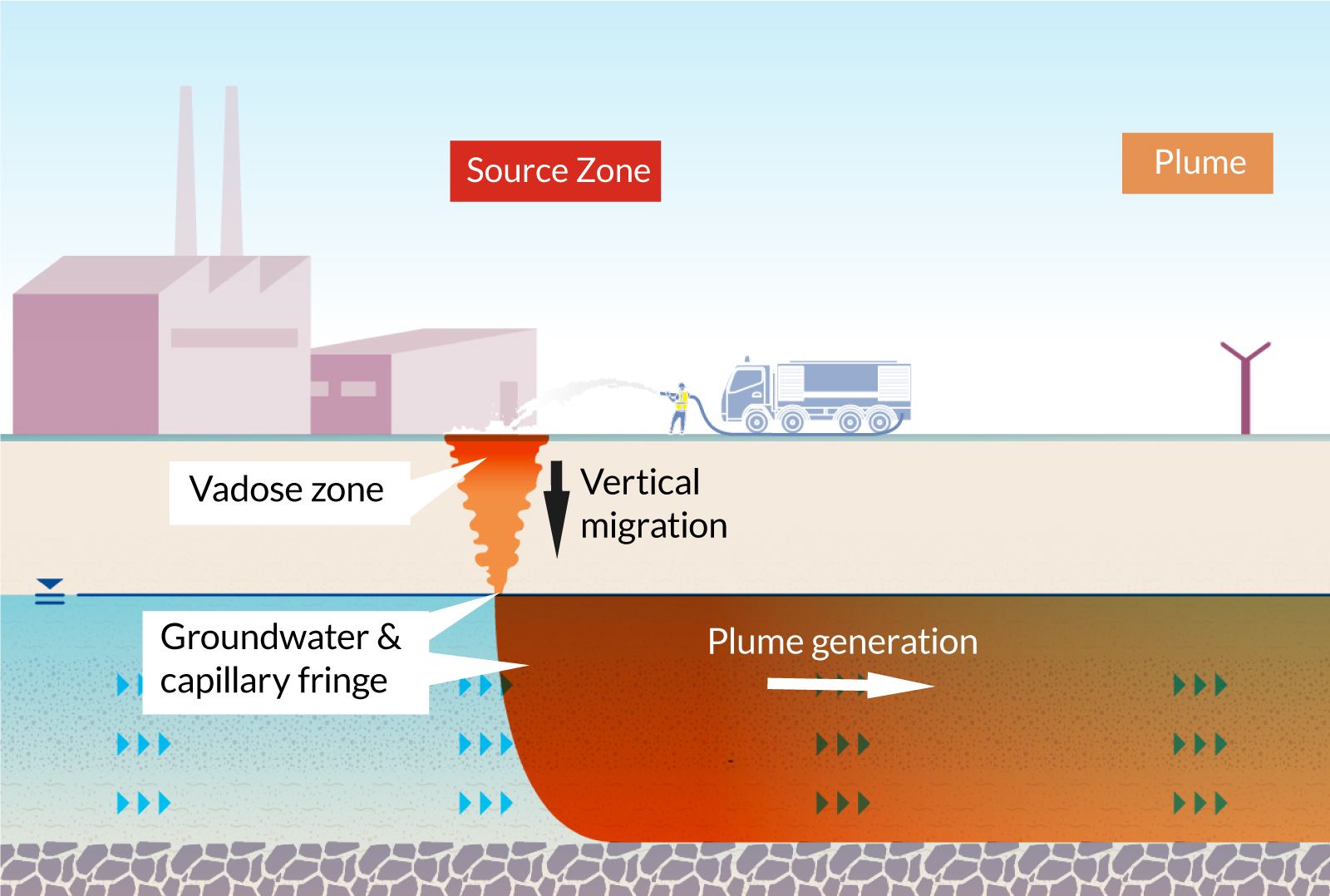Advanced PFAS Management Solutions to Protect Health
Advanced PFAS Management Solutions to Protect Health
Blog Article
Exactly How PFAS Treatment Guarantees Tidy and Sustainable Water
The existence of PFAS, generally known as "forever chemicals," postures considerable challenges to water top quality and public health. The ramifications of these treatments extend past instant wellness benefits; they increase crucial questions regarding long-lasting water management strategies that should be resolved to guarantee a resilient future.

Comprehending PFAS Contamination
PFAS, or per- and polyfluoroalkyl substances, have arised as a substantial environmental problem due to their prevalent prevalence and persistence in the setting. These synthetic chemicals have actually been used in various industrial applications and consumer items, consisting of non-stick cookware, waterproof clothes, and food packaging, because of their distinct homes such as water and oil resistance.
The contamination of soil and water resources by PFAS occurs primarily through commercial discharges, firefighting foam usage, and seeping from land fills. pfas management. When launched, these compounds are immune to deterioration, leading to their accumulation in the environment. This perseverance elevates crucial issues, as PFAS can take a trip fars away through groundwater and surface area water supply, affecting drinking water materials and communities

Health Risks of PFAS
The persistence of PFAS in the atmosphere raises substantial health and wellness worries for individuals subjected to these substances. Recognized as "permanently chemicals," PFAS do not break down conveniently and can collect in bodies over time. Research study has actually linked PFAS exposure to various damaging health and wellness effects, including immune system disorder, liver damage, and raised risk of certain cancers cells - pfas management. Significantly, studies have shown elevated cholesterol degrees and possible influence on reproductive and developmental wellness, specifically in expectant individuals and infants.
The universality of PFAS in consumer items, such as non-stick cooking equipment, water-repellent fabrics, and food packaging, more enhances the risk of direct exposure. Consuming alcohol water polluted with PFAS is a substantial worry, as these chemicals can leach into groundwater resources. Vulnerable populaces, consisting of children and those living near commercial sites, may encounter elevated threats due to their developing systems and possible for higher direct exposure levels.
As awareness of these wellness dangers proceeds to expand, regulative firms are beginning to develop guidelines for PFAS levels in drinking water. Public health and wellness campaigns are vital to mitigate direct exposure and shield communities from the long-lasting results of these unsafe compounds.

Ingenious Therapy Technologies
Just how can we effectively tackle the obstacles presented by PFAS contamination in water wikipedia reference sources? Innovative treatment modern technologies are emerging as crucial solutions in the mission for tidy water. These techniques concentrate on the removal or damage of per- and polyfluoroalkyl materials (PFAS), which are well-known for their determination in the atmosphere.
One encouraging strategy is adsorption utilizing sophisticated products, such as triggered carbon and ion exchange materials. These materials have actually revealed efficacy in catching PFAS particles from water. Another significant innovation is membrane filtering, which makes use of nanofiltration and reverse osmosis to different pollutants at the molecular level, therefore offering a barrier versus PFAS.
Additionally, progressed oxidation procedures (AOPs) employ strong oxidants to damage down PFAS compounds into safe byproducts. This approach is specifically reliable for dealing with very polluted water sources. Bioremediation methods, using certain bacteria, are additionally being checked out to weaken PFAS.
As research proceeds, hybrid systems that incorporate numerous innovations might use improved performance, addressing the intricacies of PFAS contamination. The development and execution of these innovative treatment technologies are essential actions towards ensuring the safety and security and sustainability of our water sources.
Benefits of Efficient PFAS Therapy
Effectively dealing with PFAS contamination in water sources considerably enhances public health and wellness and environmental safety. PFAS, frequently described as "forever chemicals," are resistant to destruction and can build up in the human body, resulting in severe health risks such as cancer cells, liver damages, and immune system disorder. By executing efficient therapy methods, communities can reduce exposure Website to these unsafe materials, inevitably enhancing the health results of their populations.
Moreover, successful PFAS treatment contributes to the preservation of neighborhood communities. Contaminated water can detrimentally influence water life and interrupt the delicate equilibrium of neighborhood environments. By ensuring tidy water, therapy processes shield biodiversity and maintain eco-friendly honesty.
Furthermore, efficient PFAS removal can cultivate public confidence in water high quality. When communities are guaranteed that their alcohol consumption water is without damaging pollutants, it promotes a feeling of safety and security and health. This depend on is crucial for area involvement and assistance for continuous water administration campaigns.
Future of Water Sustainability
Amid growing worries about water high quality and deficiency, the future of water sustainability hinges on cutting-edge techniques and collaborative initiatives. As areas face the looming dangers of impurities like PFAS, the advancement of advanced therapy technologies is crucial. These modern technologies not just concentrate on the removal of hazardous materials however additionally promote the reuse and recycling of water, therefore reducing overall demand.
Additionally, efficient water governance plays a critical function in guaranteeing lasting techniques. Policymakers have to incorporate scientific study with governing structures to develop clear standards for water usage and treatment. Stakeholder engagement, including regional areas and industries, fosters a sense of common obligation and encourages lasting practices across various industries.
Investment in framework is additionally critical; upgrading aging systems to integrate contemporary filtration and purification methods can substantially improve m270 waste management water quality. Accepting environment-friendly innovations, such as natural filtration systems, can offer eco-friendly services.
Ultimately, the future of water sustainability hinges on a holistic method that incorporates innovation, policy, and community participation. By prioritizing these components, we can guard our water sources for generations ahead, making certain tidy and sustainable water for all.
Conclusion
Finally, the efficient treatment of PFAS is crucial for making certain clean and lasting water. By utilizing sophisticated technologies such as activated carbon adsorption, membrane purification, and advanced oxidation processes, neighborhoods can substantially reduce the health and wellness threats related to these impurities. The assimilation of these therapy approaches sustains environment defense and improves biodiversity. Inevitably, durable PFAS treatment approaches add to lasting resilience in water administration, cultivating public count on water high quality and advertising sustainable techniques.
Report this page